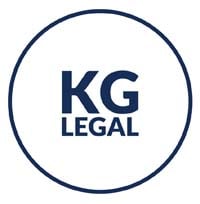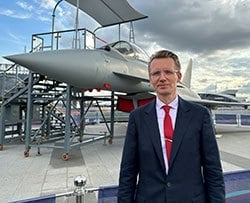 Interview with: Jakub Gładkowski
Interview with: Jakub Gładkowski

Kieltyka Gladkowski KG Legal
Managing Partner of KIELTYKA GLADKOWSKI knows how to support international clients in cross border cases.
1) What do you see as the main points that differentiate Kieltyka Gladkowski KG Legal from your competitors?
I would say that KIELTYKA GLADKOWSKI uses the extensive experience of veteran lawyers as well as new generation lawyers. This is a natural way to generate the best ideas for contractual clauses, optimal standpoints in courtrooms, most beneficial offers for clients in negotiations with opponents, fastest ways to go through necessary and often complicated regulatory procedures in such sectors as healthcare, defence, energy, cybersecurity and data protection.
Poland is the jurisdiction in a key geopolitical situation for Europe. In such modern and difficult business scenarios, what proves most effective are the safest legal solutions implemented early in the 90s that were built upon the experience of our lawyers of the most senior generation in the structure of our lawyers’ portfolio.
The experience of our lawyers corelates with most updated and current views of our new generation colleagues.
We invest in generational cooperation within our team structure, because this is required by the life and professional experience. We try to operate based on life wisdom to find answers to the dilemma “To have and have not”.
2) Which practices do you see growing in the next 12 months? What are the drivers behind that?
We prepare dedicated teams of lawyers for special purposes of foreign clients investing in Poland.
It is interdisciplinarity that is the key problem in effective and optimal support for our foreign business clients who want to invest in Poland. For example, the investment in AI data center itself, which in the natural course of the situation is a probable strategic model, does not generate only legal support for cybersecurity law, but software developers’ contracts and clauses, data processing, web scraping, and IP and data protection issues. Investing in AI data centers, which I believe will be a growing practice, also requires having specialists in commercial real estate and entire construction processes in the team; it is the need to support the client in the regulatory requirements of the organization of the entire plant, ISO standards and occupational health and safety; finally, it is support for the law of employment of qualified employees and the law of contracts with technical engineers; finally, the foreign client also needs support in locating its investment in an economic zone that has various tax incentives. In addition, it is necessary to advise on the investment vehicle for the foreign investor so as to optimize the tax and compensation risk; however, the most important issue in such comprehensive legal support is regulatory security regarding access to energy and technical infrastructure, including broadband Internet.
Looking at the trends and tendencies, I also expect growing number of cases in defence, cybersecurity, artificial intelligence, technology transfers and asset tracing. These sectors become increasingly global and therefore we extend our network of colleagues in number of jurisdictions (sometimes not so obvious ones) to handle our clients’ cases in most effective manner. The reason for these trends is a globally changing economy, new tariffs, uncertain future of crypto and related investments as well as liability for artificial intelligence in various sectors.
3) What’s the main change you’ve made in the firm that will benefit clients?
In our department specializing in business debt recovery in Poland, we have focused on training our lawyers in the use of modern computer programs. We know modern methods of searching for key information about our debtors and asset tracing.
In Poland, as in other jurisdictions, obtaining information about where the debt is located and where the debtor is located is the responsibility of the person who is collecting the debt or seeking legal protection. Modern information acquisition technologies allow you to go below the critical threshold to the Internet.
Among clients, there is a conventional idea of a private detective or investigator, and the reality is that modern debtor information searches and asset searches rely on licenses for special software and methods of using the so-called OpSec. Our lawyers have the relevant licences and are trained in this area.
Additionally, our law firm has for the past 15 years established great relations with experience and recognized lawyers in key jurisdictions and that will definitely benefit our clients in developing their business, settling cases and have very rapid reaction time. Due to the profile of our clients, which is in majority global and international, we are able to offer comprehensive solutions not only in Polish jurisdiction.
4) Is technology changing the way you interact with your clients, and the services you can provide them?
We mentioned before modern OSINT tools, but Open Source Intelligence Tools are rather tools and technologies that work for our clients and not in interaction with our clients. However, in addition to the OSINT tools that we use in our practice, there are a number of communication facilities that modern technologies provide. The main area is facilitating communication between our lawyers and clients through secure audiovisual communication channels. We use secure document circulation encrypted in the cloud and also use data rooms in negotiations, especially in technology transfer transactions, also with entities traded on the stock exchange, which includes the obligation to disclose confidential information to avoid insider trading (EU Regulation 596/2014 on market abuse). In particularly justified customer needs, our lawyers are ordered to create an anonymous videoconferencing environment using special search engines such as TOR and the Linux system.
5) Can you give us a practical example of how you have helped a client to add value to their business?
As American Bar Association Chair in the International Law Section committee, I regularly serve American clients developing their businesses in Europe and I believe that the added value that our lawyers offer to our clients is that we not only help clients with full corporate services but also actively help them with tax registrations, obtaining permits, financial reporting, and connect them with trusted accountants and accounting advisors.
Also, especially for our clients, we try to participate in organizations and business events that relate to the profile of our clients.
A key example of such events is the life of the defense sector.
Just recently, one of our lawyers had the opportunity to lecture at the Conference on Emerging Technologies at the NDIA organization in Washington DC, regarding OSINT tools in social media and legal aspects related to it.
Another example of such activity of our lawyers is participation in the Defence and Security Equipment International in London where we network and establish business relations for our clients.
Using the example of additional activity in the defense sector, we also try to acquire technological knowledge so that in the future, as business lawyers, we can speak the same technological language with the client.
6) Are clients looking for stability and strategic direction from their law firms – where do you see the firm in three years’ time?
Clients change their expectations, due to growing demands on the market. They require from their lawyers and law firms very creative approaches and application of not so obvious legal mechanisms and solutions. Therefore, I would emphasise the fact that in order to meet these requirements, lawyers need to specialize in cross sector areas and have very broad perspectives. In three years’ time, I think KIELTYKA GLADKOWSKI will offer new capabilities for the clients in such crucial areas as liability for AI, targeted cybersecurity solutions, asset tracing in crypto debts and data centres.
